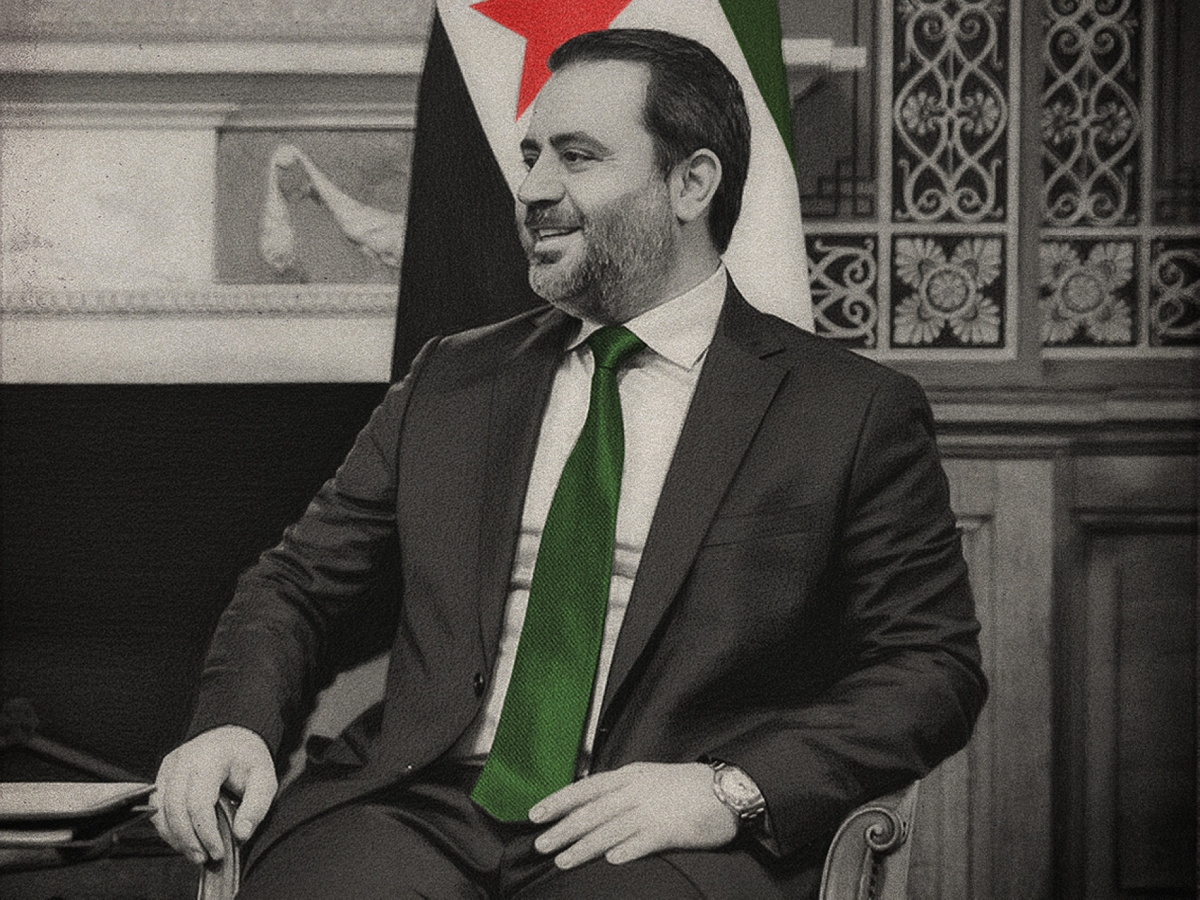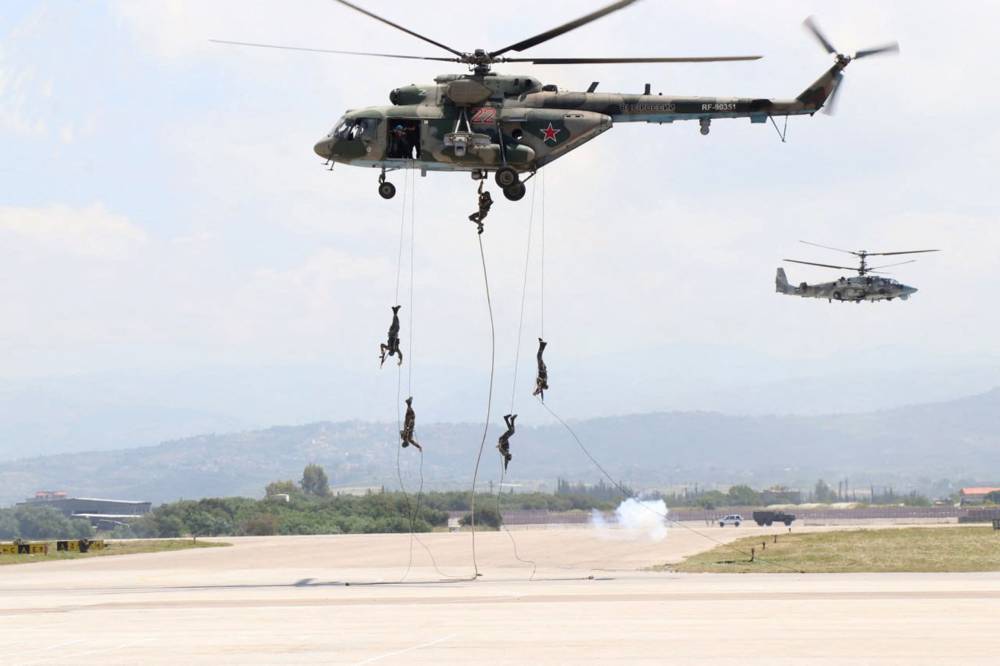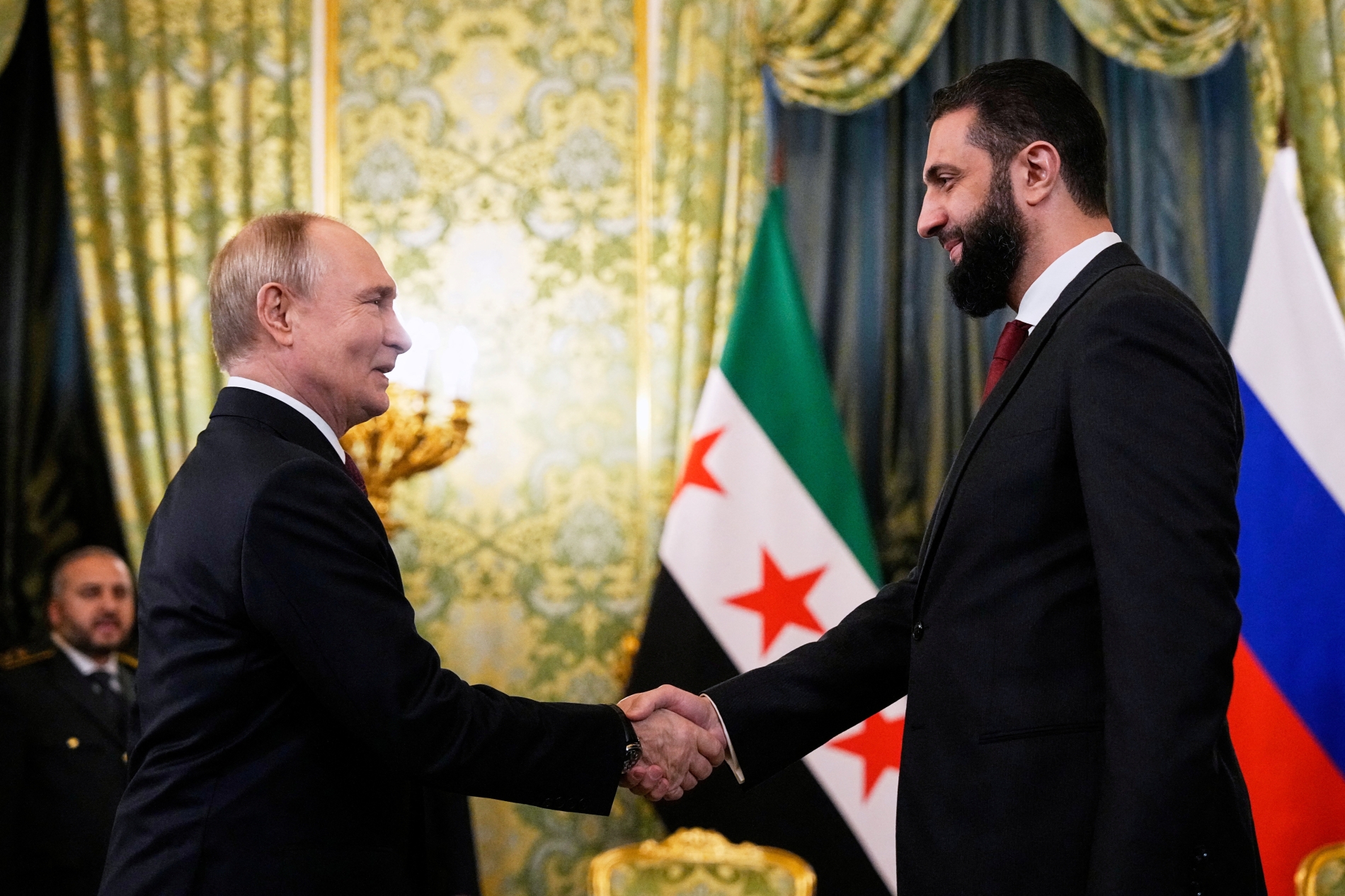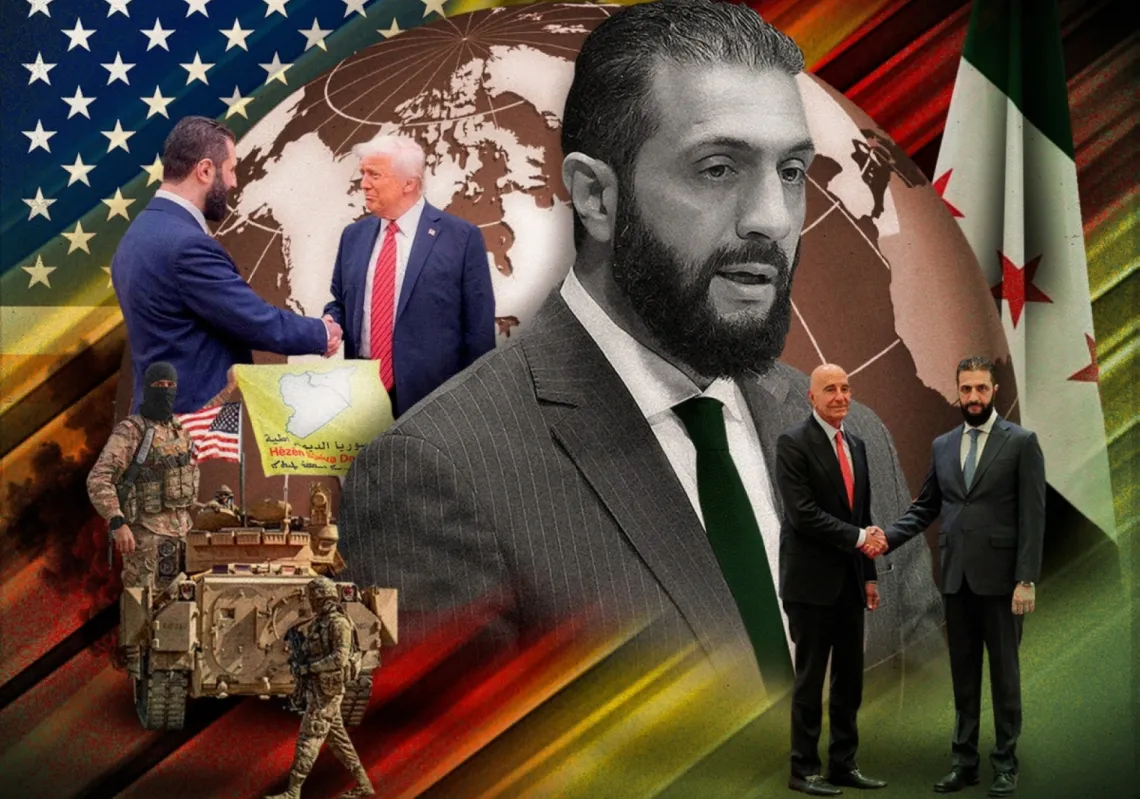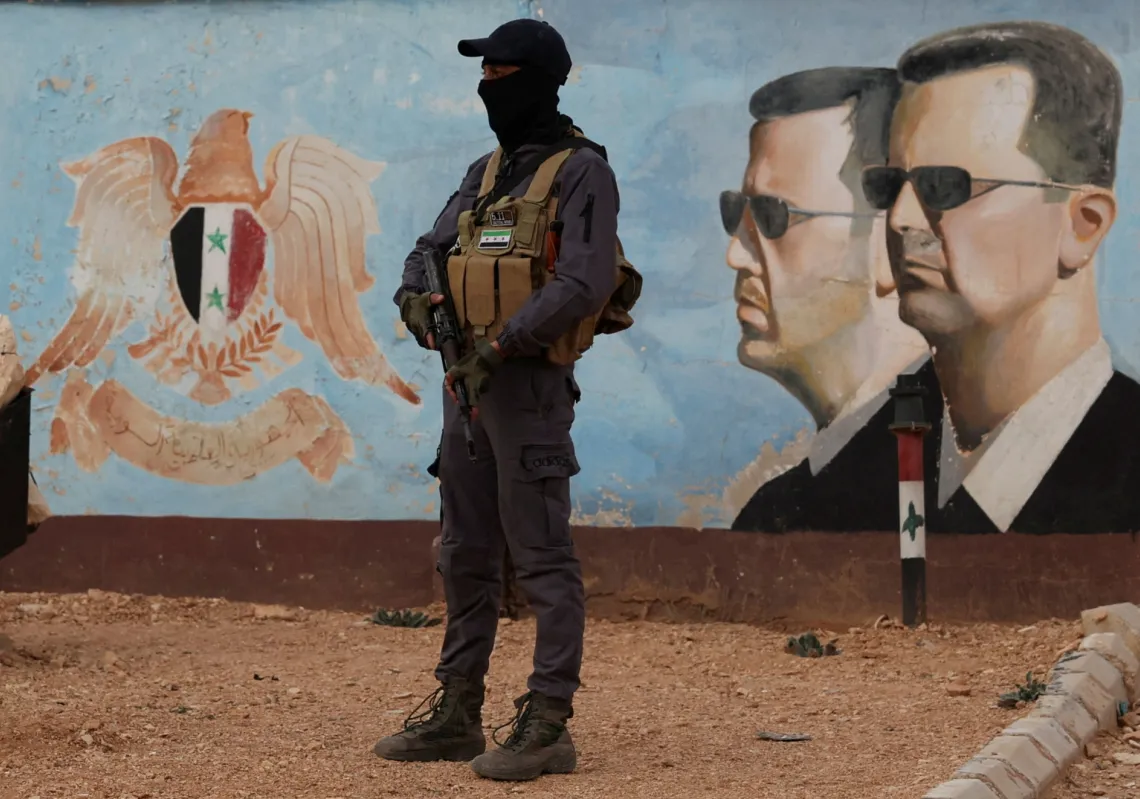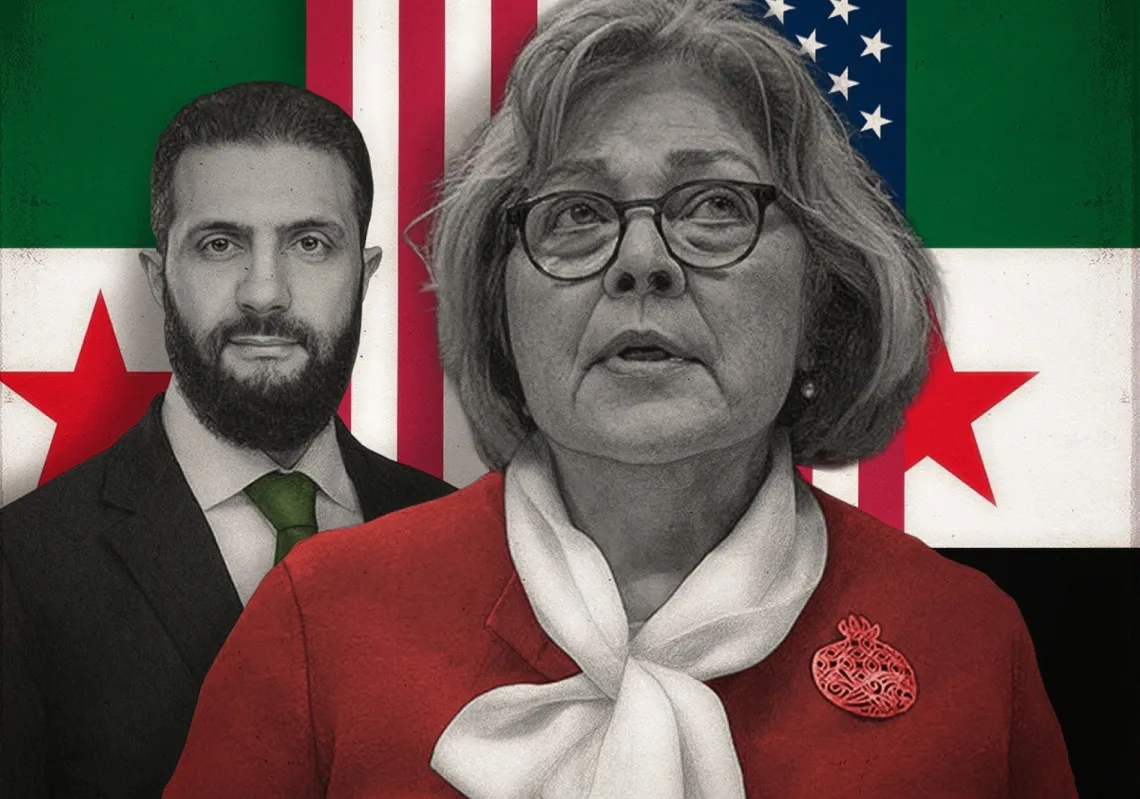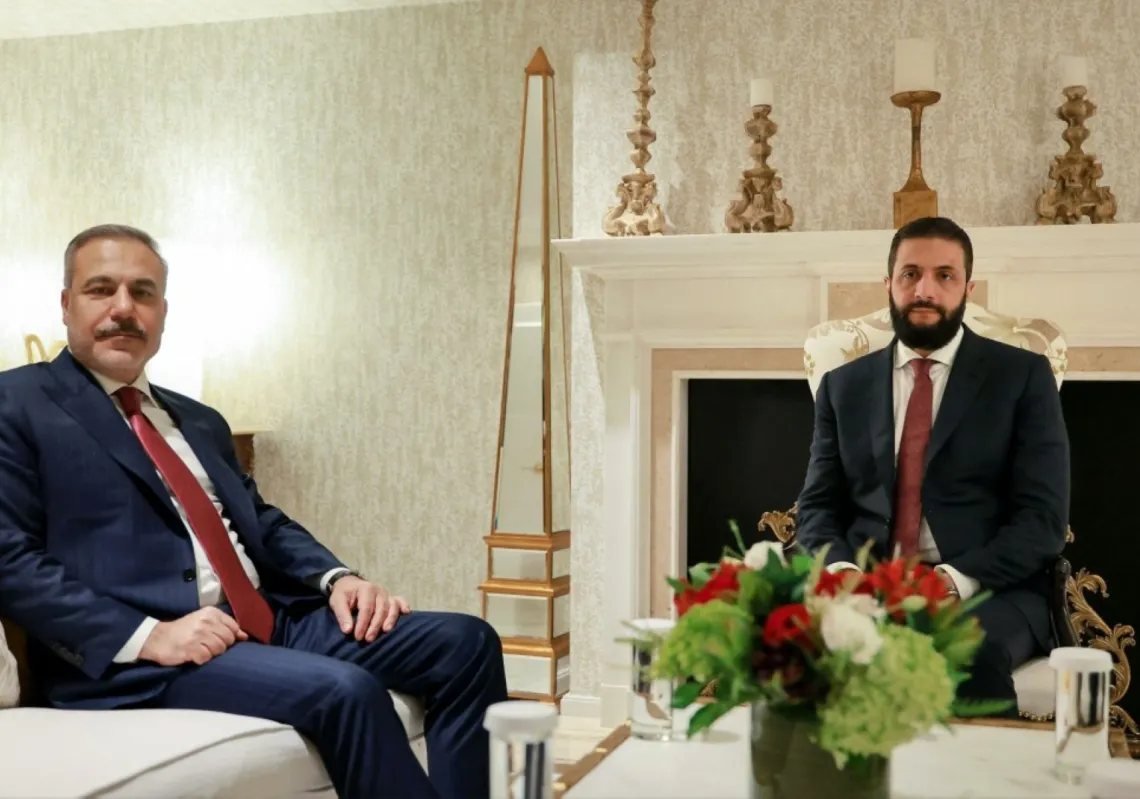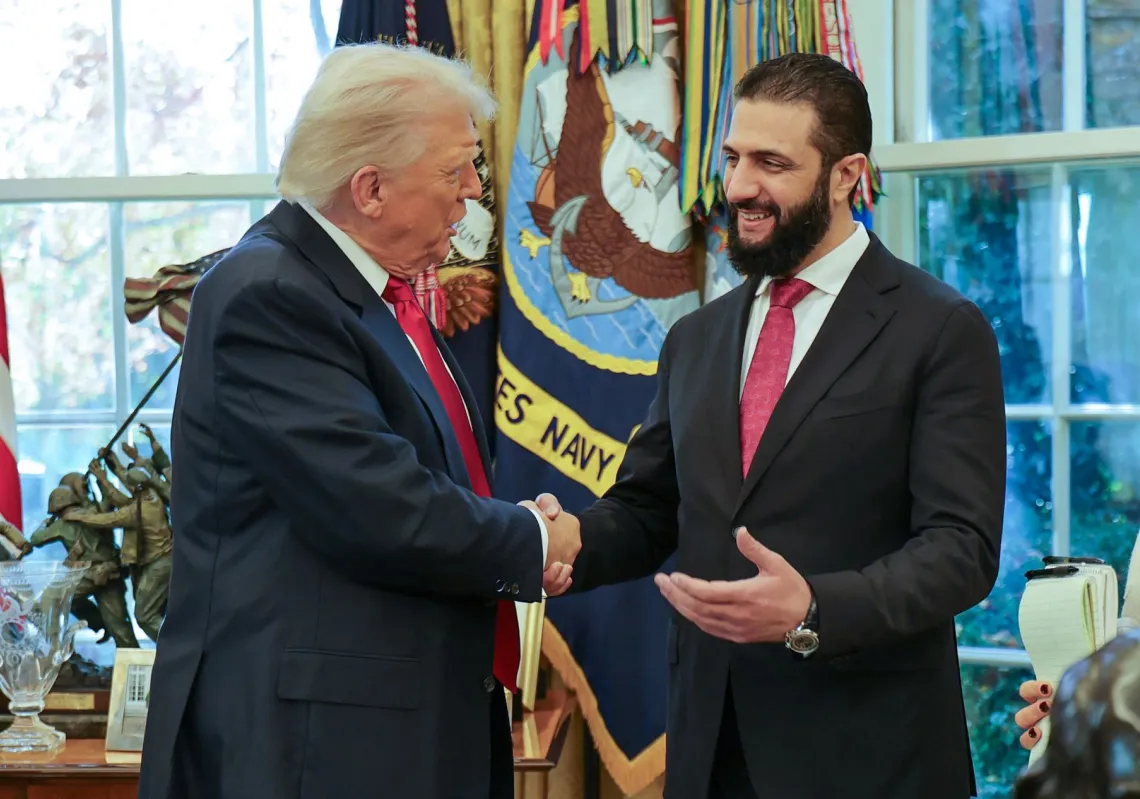Few could have imagined that within a year, Ahmed al-Sharaa would go from a designated international terrorist to meeting leaders of the five permanent members of the UN Security Council. But what has happened in Syria since 8 December 2024 has been anything but a routine diplomatic adjustment. Instead, there has been as a fundamental redefinition of Syrian politics and of Syria’s voice abroad.
At the centre of this shift is Foreign Minister Asaad al-Shaibani. Still only in his late 30s, al-Shaibani has emerged from the depth of the revolution to the frontline of international diplomacy. He neither mimics the language of the former regime nor repeats the slogans of the past. Instead, his approach is altogether different.
In this extended conversation with Al Majalla conducted on 13 November, al-Shaibani discusses the country’s major strategic decisions, including the deliberate neutralisation of Russian air power over northern Syria in late 2024, and the preparations that led to the historic meetings between President Ahmed al-Sharaa and US President Donald Trump in 2025.
Al-Shaibani knows that Syria needs help and rejects the idea that it can be an island in international relations. He cites the support of countries such as Saudi Arabia, Jordan, Türkiye, and the United States since ousting Assad 12 months ago but says there was already a plan in-place before they took Damascus. “I have been working on foreign relations since around 2018. We already had a vision of how Syria should look in the future and what keys would open the door to that future.”
Honest diplomacy
What marks al-Shaibani’s diplomacy is its avoidance of revolutionary overbidding and emotional pressure. It is a diplomacy built on realism, perseverance, and long-term planning. He summarises it as “honest diplomacy,” and is frank as to Syria’s situation. “We have a devastated country,” he says. “We want good relations with all states so they can help us. And we move step by step.” This has impressed foreign capitals. States that once saw Syria only through a narrow security lens now have a leadership delivering on its promises. “What I told them would happen did happen,” he says.
Regarding the “Russian knot,” al-Shaibani says he found himself across from senior Russian figures at the Bab al-Hawa crossing at a pivotal moment just less than a year ago, when he told them that the opposition would be in Damascus in 48 hours. Crucially, the Russians were told: “Bringing down the Assad regime does not mean Russia must leave Syria.” That led the Russians to fall back, which in turn led to Bashar al-Assad’s army disintegrating.
The new Syrian government’s approach to the Russians came from critical analysis, gauging Moscow’s interests and Syria’s priorities. It has led to a redefined relationship that remains an ongoing process. The Russian bases at Hmeimim and Tartus are part of those considerations.
Here is Part 1 of the conversation.
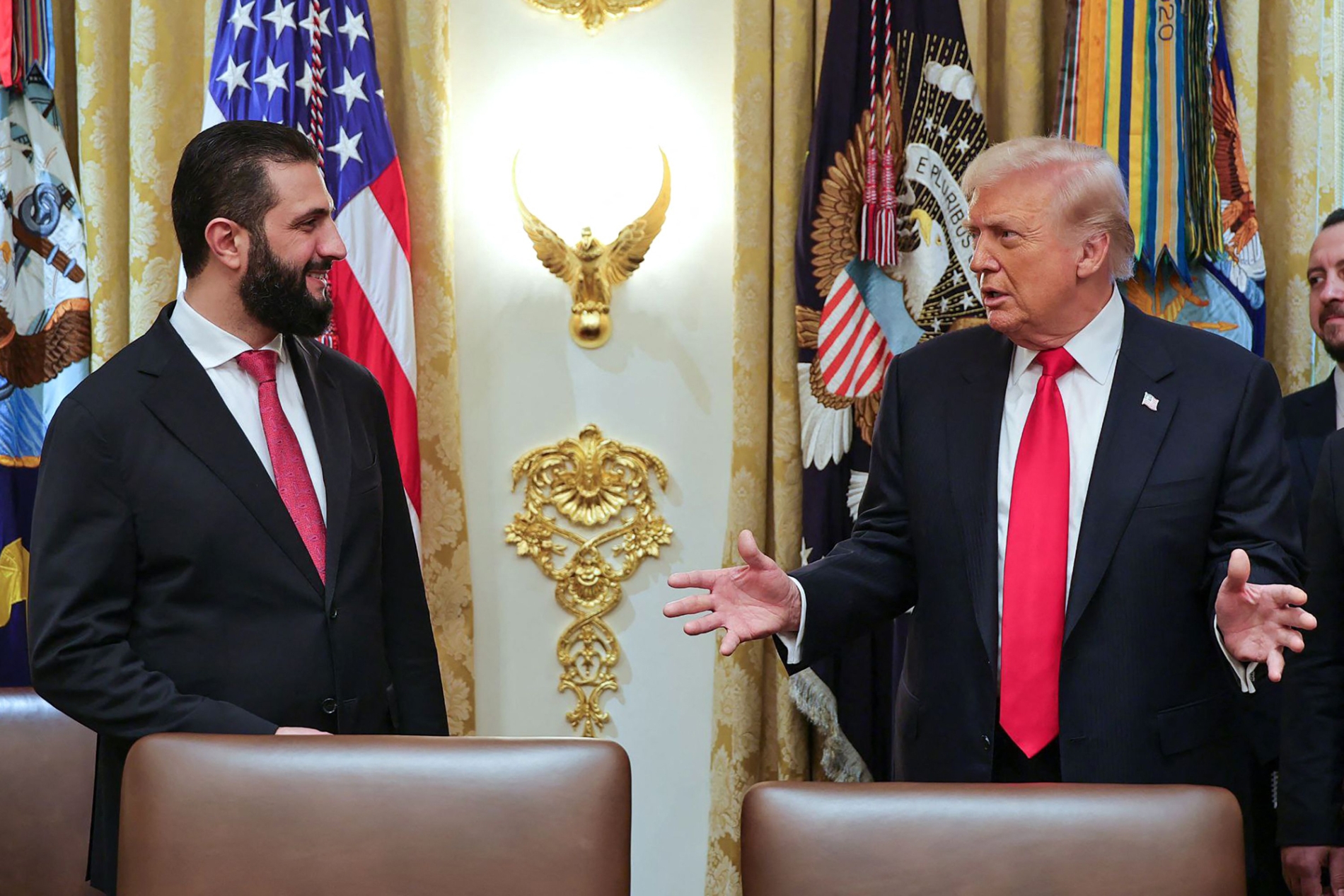
In 2024, President Ahmed al-Sharaa and Hay’at Tahrir al-Sham were blacklisted, with no recognition either from Arab states, the West, or the UN. Today, he meets world leaders, a staggering diplomatic leap. How did it happen?
There is widespread astonishment, but personally, I am not surprised. I’m not sure why, but the success achieved through Syrian diplomacy does not strike me as improbable. I have been working on foreign relations since 2018 and have had access to many countries in that capacity. A vision for the (Syrian) state was already present in our minds—what Syria could become, and what keys would unlock that future.
You cannot speak of a project that leads a nation without foreign relations. We are not an island cut off from the world. The international arena often operates on rigid, pre-packaged assumptions that individuals must learn to navigate. If one remains captive to those assumptions, failure is virtually guaranteed. What is required is perseverance and the creation of new tools to influence the outside world.
Was the transformation sudden?
What occurred on 8 December 2024 was, in itself, a profound surprise, not only for the Syrian people but for foreign governments, whether they were invested in Syria or not. The event was anything but ordinary. What caught everyone’s attention was the sheer velocity of change, how rapidly things began to move inside Syria. Diplomatic relations accelerated almost immediately. We began receiving delegations and engaging with both domestic and international actors, especially decision-makers in the region.
Naturally, there was initial hesitation. They wanted to know who we were and where we came from. Any political shift is bound to provoke scrutiny. But that scepticism began to dissolve at the first meeting, once they heard the vision we presented, the clarity of our thinking, and our national orientation. Suddenly, here was a message rooted in patriotism, openness, and sincerity.

Perhaps for the first time, we presented a diplomacy that was honest, free of deception and double-speak. We have national interests—our country is in ruins. We want constructive relations with all nations, so they can assist us in this (reconstruction) phase. We move forward in deliberate steps; that was the foundation we laid at the beginning of liberation. Now, countries see real credibility. What I told them would happen has happened. What I forecasted would materialise has materialised.
The new leadership has faced serious challenges and met them with composure. The threat of the Islamic State (IS), the remnants of the previous regime, political landmines, the question of sanctions... Every move we made was backed by a vast team. There were layers of detail, tensions, strain, and strategy, but we showed that we could manage this phase with immaturity. We are not novices who fail to grasp the gravity of our position. There was no naïveté, no simplistic thinking, but rather seriousness, integrity, commitment, and a clear vision. That gave us confidence and convinced our counterparts that we were a trustworthy partner.
The first foreign visit was to Saudi Arabia?
Syrian diplomacy today operates with realism and relentless perseverance. We have learned from the missteps of others and managed to chart a clear and deliberate course. Yes, our first destination was Saudi Arabia. From there, we raised our flag at the United Nations (in New York) and attended every conference. Even when we were not fully prepared, we showed up and took part.
Until then, Syria had been largely absent from the international stage. Now, it was not only present but active. Syria went from being a distant and misunderstood case to something familiar, engaging, even admired. Syria began to look like a model worth studying or a partner worth having. We began to offer a credible alternative.


